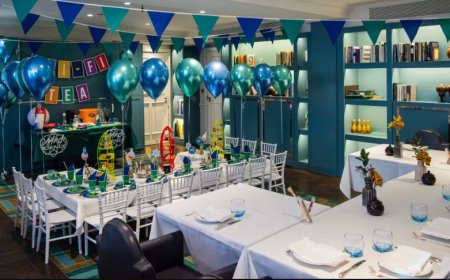Top Tips for Successful Home Renovation Projects in Nepal
Planning a home renovation in Nepal? Discover expert tips to help you manage budget, hire the right professionals, and avoid costly mistakes during your renovation project.

Renovating your home can be an exciting journey whether you're updating outdated interiors, fixing structural issues, or simply giving your space a modern look. In Nepal, home renovation is becoming increasingly popular, especially in urban areas like Kathmandu, Pokhara, and Lalitpur, where homeowners want to enhance comfort, functionality, and property value.
However, without proper planning and expert advice, renovations can easily turn into costly and frustrating projects. Thats why weve compiled these top tips for successful home renovation projects in Nepal to help you get it right from the start.
1. Define the Purpose of Your Renovation
Before picking up a hammer or hiring a contractor, be clear about why you want to renovate. Ask yourself:
-
Are you improving functionality (e.g., adding rooms or storage)?
-
Are you increasing the resale value of your home?
-
Is it for aesthetic upgrades (e.g., modernizing the kitchen or bathroom)?
-
Are you fixing structural or water damage?
Having a clear purpose will guide your design choices, budgeting, and project timeline.
2. Set a Realistic Budget and Add a Buffer
Renovation costs in Nepal can vary depending on the size of the project, location, and materials used. Make a list of expected expenses, including:
-
Contractor fees
-
Materials and fixtures
-
Labor charges
-
Municipality permits or approvals (if required)
Always include a 1015% buffer for unexpected costs because surprises are common during renovations, especially in older homes.
3. Hire the Right Professionals
Hiring experienced professionals can make or break your renovation project. Look for:
-
Certified contractors with renovation experience
-
Interior designers or architects (for major layout changes)
-
Licensed electricians and plumbers (for safety and compliance)
Tip: Ask for referrals, review past projects, and ensure contracts are transparent about costs, timelines, and responsibilities.
4. Focus on Structural Repairs First
If your house has any foundation cracks, roof leaks, damaged beams, or termite issues fix those first. Cosmetic changes like paint or tiles wont matter if the structure isnt sound.
Prioritize:
-
Foundation and wall repairs
-
Roof waterproofing
-
Plumbing and drainage systems
-
Electrical rewiring (if needed)
Think of it as building a solid base before decorating the surface.
5. Use Quality Materials for Long-Term Value
In Nepals diverse climate, using durable and weather-resistant materials is essential. Choose:
-
Cement boards and water-resistant paint for humid areas
-
Plywood or PVC for kitchen cabinets
-
Double-glazed windows for insulation
-
Earthquake-resistant reinforcements if youre making structural changes
While cheaper materials may reduce short-term costs, they often lead to expensive repairs later.
6. Get Required Permits (If Applicable)
Small-scale renovations may not require approval, but major changes involving structure, layout, or utilities often do. Check with your municipality or ward office before starting.
Skipping this step could lead to fines, legal issues, or complications during future property resale.
7. Plan for Temporary Disruption
If your renovation is extensive, you may need to relocate temporarily or limit use of certain rooms. Prepare for:
-
Dust and noise
-
Restricted water or power supply during upgrades
-
Relocation of furniture and appliances
-
Safety concerns for children or elderly family members
Planning for these disruptions will reduce stress during the project.
8. Be Involved but Trust the Process
Stay updated with your contractor or project manager through regular check-ins. However, avoid micromanaging every small decision. Professionals need space to execute efficiently.
Use a shared checklist or calendar to track:
-
Milestones
-
Payment schedules
-
Material deliveries
-
Inspection or testing phases
9. Dont Forget the Finishing Touches
Once the heavy work is done, focus on the details that make your house feel like home:
-
Lighting design
-
Wall colors and textures
-
Curtains, furniture, and decor
-
Green spaces or indoor plants
These finishing elements can dramatically elevate the vibe of your renovated space.
Conclusion: Renovate Smart, Not Just Fast
Home renovation in Nepal doesnt have to be stressful. With proper planning, budgeting, and expert support, you can transform your space into something more beautiful, functional, and valuable.
Therefore, investing in home renovation in Nepal is a smart way to enhance comfort, increase property value, and reflect your personal style.
























